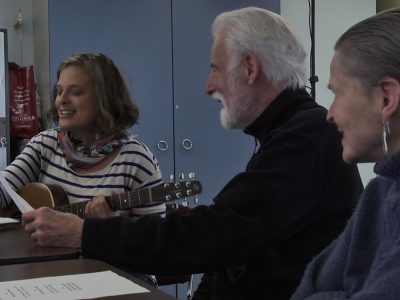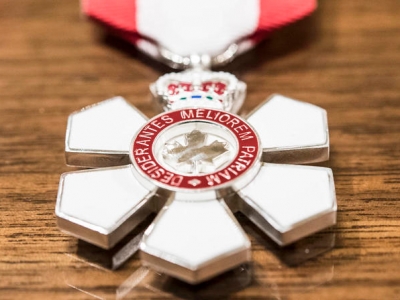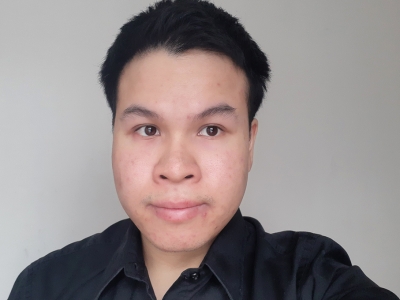By Lesley Barry
Photos by Chris Roussakis
The incredible recovery of former U.S. congresswoman Gabby Giffords from a traumatic brain injury, sustained when she was shot in the head in 2011, has been inspiring to many—not least a Grade 12 student at Ottawa’s Lisgar Collegiate Institute.
Wim Creutzberg became fascinated by the way Giffords regained the ability to speak when her brain’s neuroplasticity was engaged by music therapy.
“The brain processes music like no other stimulus,” he says. “The more I looked into it, the more interested I got in how we process patterns and why that can make us feel good.”
With help, he developed a methodology to investigate changes in dopamine activity in response to anticipated pattern alterations in music. In February, he was using functional near-infrared spectroscopy to gather data.
It’s unusual work for a 17-year-old.
In fact, Creutzberg was enrolled in an innovative program that bridges the gap between secondary and university education that helps admissions departments identify promising students.
Prof. Matthew Holahan, undergraduate chair of the Department of Neuroscience at Carleton University and Creutzberg’s mentor, was happy to lend his support.
“The mentoring process has been really positive,” he reports. “Wim has some really good ideas, and, like other high school students I’ve worked with, he’s highly motivated. Part of my job is to find a balance between being encouraging and being realistic; there are constraints around time and equipment accessibility, for example. We’ve had discussions and worked out something that’s feasible.”
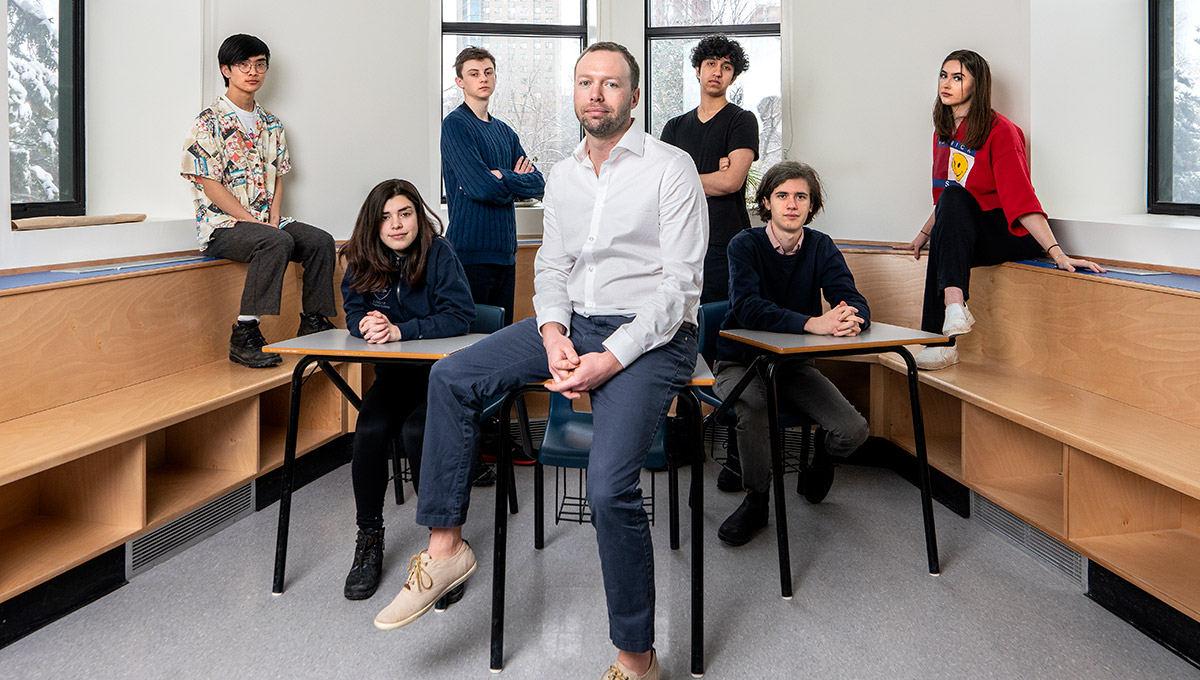
Eclectic Mix of Students
The Capstone Research Program is an import from the U.S. College Board, an organization that develops standardized tests and courses that support post-secondary admissions. Just 30 secondary schools in Canada are currently authorized to offer the program, and Lisgar Collegiate Institute in Ottawa was one of the first on board.
“We identify students in Grade 10 who are up for the challenge,” says Mike Middleton, the Lisgar teacher who oversees the program.
“In Grade 11, the program’s first year, students learn to analyze different texts and research studies. Grade 12 starts with four months of intensive training in research methods, and they begin to identify what they want to research. Our position is: if they have an interest, we’ll find a way to study it.”
That can lead to an eclectic mix.
Alongside Creutzberg, the other four students mentored by Carleton faculty in this year’s group of 15—Lisgar also has arrangements with the University of Ottawa, Global Affairs Canada and the National Research Council—investigated hate crimes, funding of women candidates in the Republican Party, the evolution of a fairy tale as it passes through generations, and the influence of TikTok, a video-sharing social networking service, on digital story-telling.
“Importantly, they are out doing real field research,” adds Middleton. “They’re taking water samples, scheduling interviews, analyzing archival documents. Given their age, it’s impressive.”
Anika Bousquet was the first student to be mentored at Carleton, for her study on how Canada could implement the UN Declaration on the Rights of Indigenous Peoples relating to land rights. Now at Queen’s in a politics, philosophy and economics specialization, she credits the capstone program with giving her a smooth transition to post-secondary education.
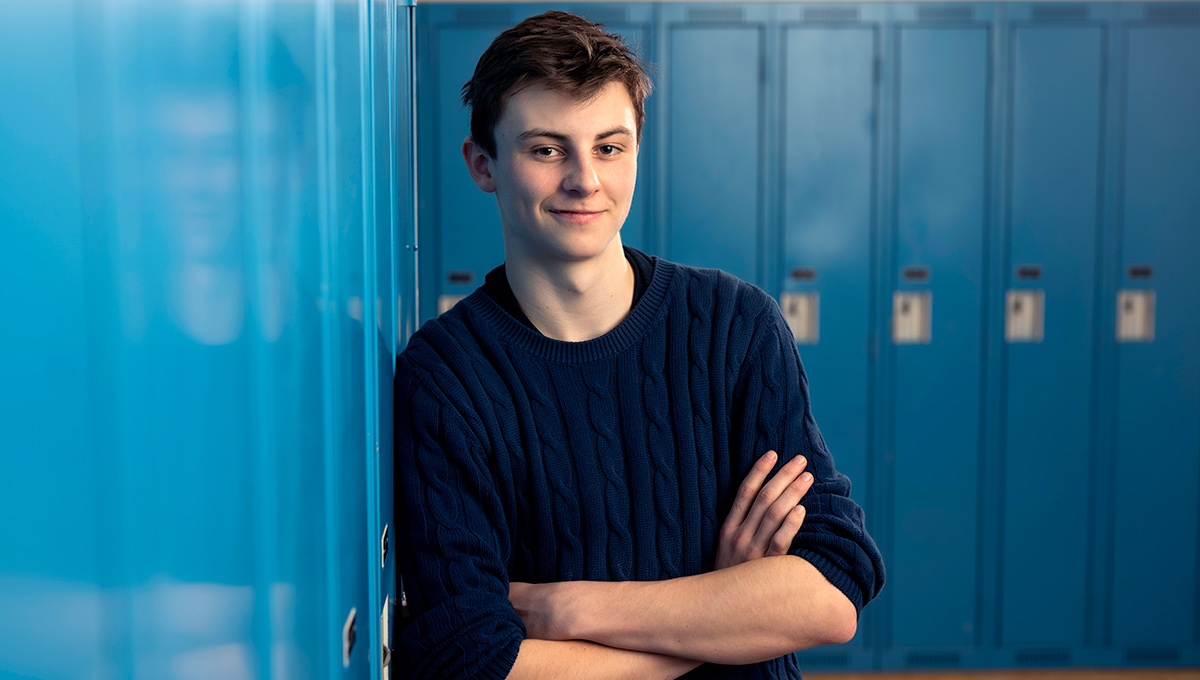
Risk-Free Environment for Research
“It made such a difference to my first year, which a lot of my peers found difficult.” So comfortable was she in the academic environment that she took on a role as research assistant at a campus lab conducting reconciliatory research.
Bousquet’s capstone experience also provided a risk-free environment for exploration. Her research included attending meetings of the Standing Senate Committee on Aboriginal Peoples — “an unforgettable glimpse into decision-making”— which prompted the realization that she had a strong interest in policy.
Meanwhile, Creutzberg appreciates learning skills around professionalism and time management: “In class we practised writing formal emails and talked about how to contribute in meetings, and even what to wear. Without this, I would’ve had to learn these things by trial and error.”
In his role as mentor, Holahan appreciates the opportunity for community linkages.
“Carleton has great people with great ideas,” he says. “It’s really nice that secondary students in the area are aware of that, and that they know we’re ready to build relationships and foster their curiosity.”
Like many Carleton students, this year’s capstone class faced unique challenges when campuses were closed in response to the COVID-19 pandemic, necessitating creative solutions to data collection and stakeholder interactions. (The photographs that accompany this article were taken before the lockdown began and social distancing rules were implemented.)
Despite these challenges, capstone students completed their research and are poised to confidently take their first steps into post-secondary education this fall, in large part to the experience they gained through capstone and the mentoring process.
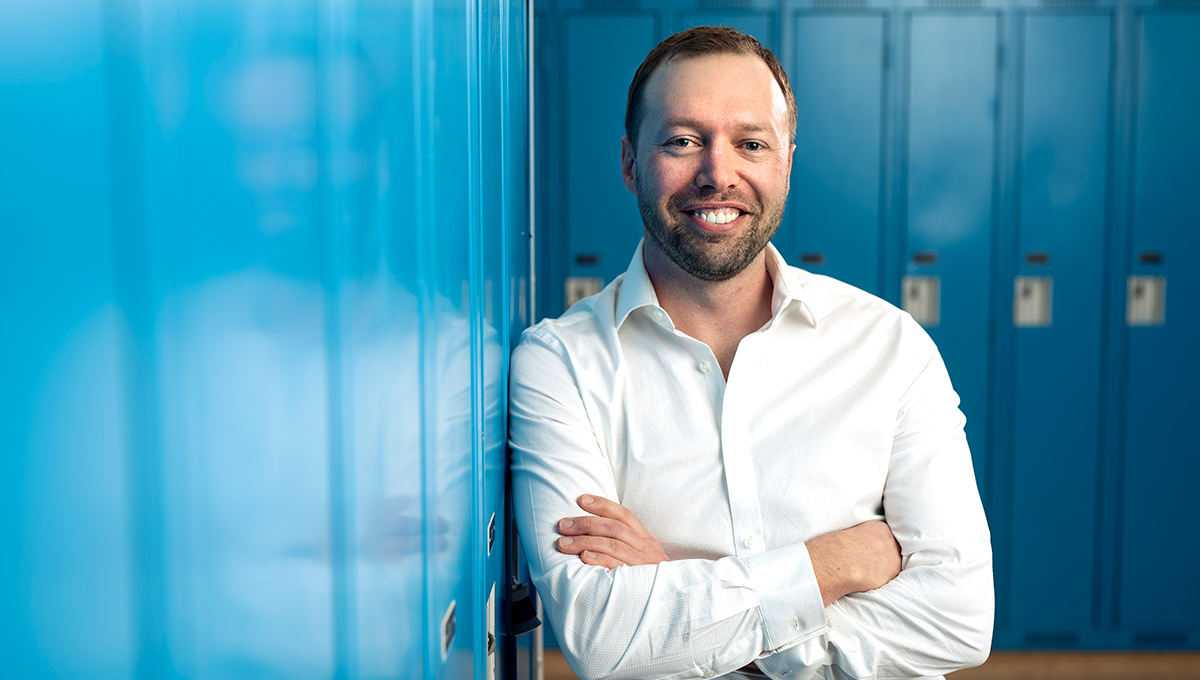
Thursday, July 30, 2020 in Leadership, Partnerships, Research
Share: Twitter, Facebook
